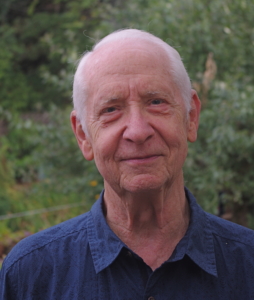Primetime by Jane Fonda
Book Review by Barrie McMaster
 Twice in my life, I have been ‘tongue-lashed’ from a surprising source that changed my worldview. Strangely, both lashings concerned aging and my oh-poor-me attitude.
Twice in my life, I have been ‘tongue-lashed’ from a surprising source that changed my worldview. Strangely, both lashings concerned aging and my oh-poor-me attitude.
The first time was from my normally outgoing, affable mother-in-law. I had turned forty, and I snivelled to her that I was going over the hill, that there was less to look forward to, and that I was not ready to be “middle aged”. Suddenly, like a buzz saw, my mother-in-law all but screamed into action, telling me she found a second life that started at forty, once her children were older. At forty, she entered a wonderful career (in which she had distinguished herself) because she brought life experience to it, and at forty, she had found fulfillment like she had never previously enjoyed. It was time, she said, to give my head a shake and renounce such attitudinal silliness.
The second surprise was on my sixtieth birthday, and the source was my beloved oldest daughter. She assailed me for essentially the same negative attitude toward aging. Look at Colonel Saunders, she said. He didn’t even get into his wildly successful chicken franchise until well into his sixties, and there are lots of others who only came into stride in their sixties and seventies. I was put in my new sixty-year-old place.
Third time is the blessing, right? This time it was not a decade birthday but I had back-slid into absolute denial about the fact I was now past the seventy-mark. And my worldview again was changed by a surprise source. Again, in fact, by the voice of a woman. The tone was gentler, perhaps, because it was an interview situation. But for its impact on me, it was more profound.
While driving my car, I happened upon a radio interview. The interviewee was an author, and her intellect, her arguments and her tone on the topic of getting old were unassailable. Right there in the car, I consciously abandoned my denial. It seemed to happen in an instant.
Only at the end of the car-radio interview did I find out that this wise author was Jane Fonda, actress and physical exercise guru. I almost drove off the road! Then I realized that she too must have aged, but there she was with a new book.. I purchased her book for my Kindle, which thankfully meant I was spared the generous decorations from her family photo album that might distract from her rich research and engagingly-written words.
It is a book that comes from a completely secular place, but a book filled with ample research, much wisdom from both the author and those she quotes, and some engaging stories of her own about attempts to defy traditional concepts of aging. The book is thorough and well organized. It is readable. She covers almost everything except some of the Canadian legal and medical issues that I would not expect her to cover anyway.
Find the true ‘you’
The bottom line for me: this book and its author changed my life and my outlook on aging. I can “amen” her assertion, “For me, right now, this time in my life feels like I am beginning to become who I was meant to be all along.” She adds, “I never envisioned myself as a happy, learning-to-be-wise older woman. It didn’t just happen. I have worked at it.” This is good stuff! And being purposeful is one of her themes.
Fonda’s basic premise uses a drama metaphor. “…If we understand more deeply what Act I and Act II are (or were) about, who we are (or were becoming) during those foundational years, what dreams are still to be realized and which regrets addressed, then we can see Act III as a coming to fruition, rather than…the absence of youth.”
This author is not alone in propounding that entry into older age is a wonderful time to review your life. Literally, find yourself all over again in a new and potentially rich setting, and in the process enrich your own life and the lives and relationships of those around you. Fonda makes a compelling argument. It is for me probably the major value of her book, even accounting for its title, “Prime Time”.
“Review your life,” she says. It’s a practical discussion. She writes, “Discovering a metaphor for the story of your life can open you to internal growth, renewal, expanded self-definition, surprising energy, and healing….” And write it down, she says, because that makes it intentional and takes you deeper than mere random thoughts.
Keep fit
Of course Jane Fonda writes about the need for physical fitness — to treat your aging body as what it is, by working it physically, and working your brain and emotions too. I like her quote from the singer, Cher, who said, “I’ve been screaming at the top of my lungs at my family, ‘Work out! Work out! Old age is coming.’ At some point you will need the strength.”
Fonda has wise words about exercise: don’t go for all-out, youth-oriented, body-burning masochism. “This is the stage of life where there is less room for ego and more need for humility, balance, and common sense,” she says. So do exercise, “but at a lower level.” She writes, “Younger peoples’ bodies are more resilient and forgiving, whereas older bodies are weakening; unless we deliberately intervene to slow this process down (or yes, even reverse it), we risk sliding into decrepitude. It is largely up to us.” There’s that theme again: up to us!
Would one be surprised to learn that she has an extensive and explicit appendix containing exercises suitable for the age group? She actually offers two appendices — one on exercises and one on exercise routines.
The book includes a good discussion of diet issues, including what appears to this non-expert to be up to date scientifically-based offerings on what’s good for us (and what isn’t!) There is an appendix on this topic, too. I love her quote by Orson Welles: “My doctor told me to stop having intimate dinners for four; unless there are three other people.” Fonda goes far beyond ‘amount’ to lead readers through body chemistry and helpful food choices.
Keep friends – and closeness
Fonda writes at length about friendship, intimacy and sexuality in Act III.
She writes personally about the importance of friendship and family (“saying ‘we’ and knowing who you mean”.) Fonda spends time on family connections and how they are important. She acknowledges – rather than argues for – the fact that most people know this truth and that it becomes more acute as we age. She talks about the importance of good friends, and about the need for a variety of friends, when possible.
She takes the reader beyond her tongue-in-cheek statement, “It’s good to have younger friends. At least that way not everyone you know will die before you do!” She notes that older people “tend to have more intense relationships.”
Fonda writes also about loneliness, noting gender differences may colour what occurs when one tries to cope with the loss of a loved one or good friend. She quotes social neuroscientist John Cacioppo on loneliness, noting it is often the perception that you are now isolated, rather than actual time spent with others. For all that, “Loneliness can become more of a problem in the Third Act.”
She includes two thorough, plain-talk chapters on love and sexual intimacy in the Act III stage of life. (This time, no appendix, because she adds other chapters on specific intimacy issues.) She argues that senior years, if done well, bring both individuation and androgenisation, worldviews that are useful in many friendships but particularly germane to sex. Individuation means you know your boundaries, know who you are. In many ways that can generate a freedom in relationships rather than a shallower desire for mere acceptance. Androgenisation means one is less bound by gender roles and stereotypes, a state of mind that can bestow a freedom on intimacy and a deep level of caring.
From the stories and general setting Fonda provides, she moves to gender-specific research affecting sex and aging. For some that will provide useful reading; for others, perhaps not so much. But it is there in the book as an excellent resource.
She concludes with practical issues and references that seniors and their families need. She has chapters on ‘leaving footprints’, and especially for women, ‘ripening the time’ (“So let’s sow those seeds far and wide and see what grows!”) She argues for planning ahead, quoting Mary Catherine Bateson: “One of the things I have come to
feel…is that if you think you know what you’re going to be doing in five or ten years, you’re wrong. But if you don’t have an opinion on it, you’re in trouble….”
Part of the planning process includes retirement, long-term care, end-of-life matters including a living will, and where and how you’ll live as infirmity advances on you..
Fonda is enthusiastic about her zen experiences, as she contemplates the fact that “the wind isn’t at my back anymore – it’s right in my face!”
She concludes with her view of aging and speaks particularly to and about women. “As we shape our own last third of life, so do we help to transform the experience of age…, modelling what it means to live an examined life of reflection, compassion and balance.”
I am not in agreement with all the ways she gets there, but can only “amen” the concluding sentence. And doff my hat to her basic premise: Act III is potential prime time, so leave your snivelling behind, and live it as fully as you can!

Barrie McMaster is an award-winning news reporter and radio broadcast executive best known for his work in the B.C. Lower Mainland. He reported on many major events in and around Greater Vancouver and was a familiar voice on CKNW newscasts. He helped to put a new Fraser Valley radio station, STAR-FM on-air as its program director. He holds an M.A. in Political Science, and shaped and taught the first two-year broadcast journalism program at the B.C. Institute of Technology.
He is active in volunteer work in the Valley, having served as president of Chilliwack’s Rotary club, a director on the Ann Davis Transition Society board, Chilliwack Social Planning Council, Chilliwack Symphony Society and many political campaign committees. He served as B.C. Correspondent for the Mennonite Brethren Herald magazine and continues as a freelance writer.
His passions include his local church, where he has served as an elder for many years. He and wife Jan have travelled frequently to West Africa as members of instructional teams. At home, they often serve together on community projects and passionately love and enjoy family and grandchildren. Barrie plays the cello, loves travelling, and enjoys time with friends.
He likes to share the fact that aging is far better than it’s cracked up to be. “It can be a wonderful time of life.”




